1. Introduction: Navigating the World of Caster Materials – Polypropylene vs Polyurethane
When it comes to equipping your carts, เฟอร์นิเจอร์, or industrial equipment with the right casters, the choice of material plays a pivotal role in determining both performance and longevity. In the diverse world of caster options, two materials often stand out for their unique properties and applications: polypropylene and polyurethane. Each of these materials brings distinct advantages and limitations to the table, making the decision between them more than just a matter of price or availability.

At Bullcaster, we understand that the right caster can make all the difference in your operations, whether you’re managing a busy warehouse, setting up a new office, or equipping heavy-duty machinery. That’s why we’re diving deep into the comparison between polypropylene and polyurethane casters. Our aim is to provide you with a comprehensive guide that not only informs but also empowers you to make the best choice for your specific needs.
2. What are Polypropylene Casters?
Polypropylene casters have become a popular choice in various industries due to their unique blend of properties. But what exactly are these casters, and what makes them stand out?
① Definition and Basic Description:
Polypropylene, a thermoplastic polymer, is known for its versatility and affordability. Casters made from this material are recognized for their lightweight and resistance to corrosion, making them a suitable option for a range of applications, particularly where cost and simplicity are key concerns.
②. Characteristics of Polypropylene Material:
Lightweight: Polypropylene casters are significantly lighter than many other materials, which makes them an excellent choice for applications where ease of movement is crucial.
Corrosion Resistant: This material does not react with water, detergents, and most acids, ensuring longevity in environments where exposure to such elements is common.
Color Versatility: Polypropylene can be easily colored during the manufacturing process, offering aesthetic flexibility.
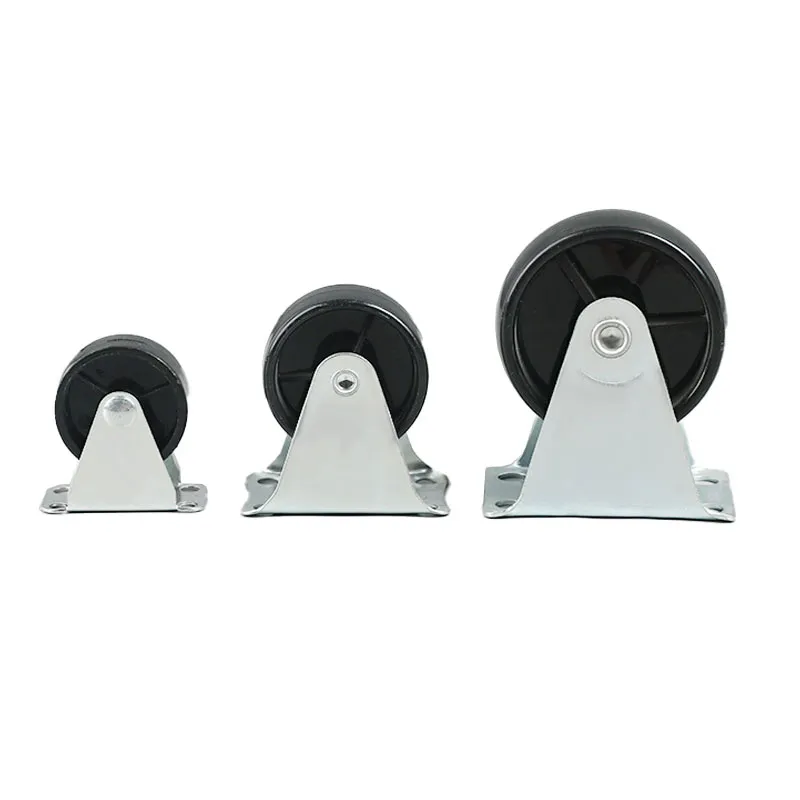
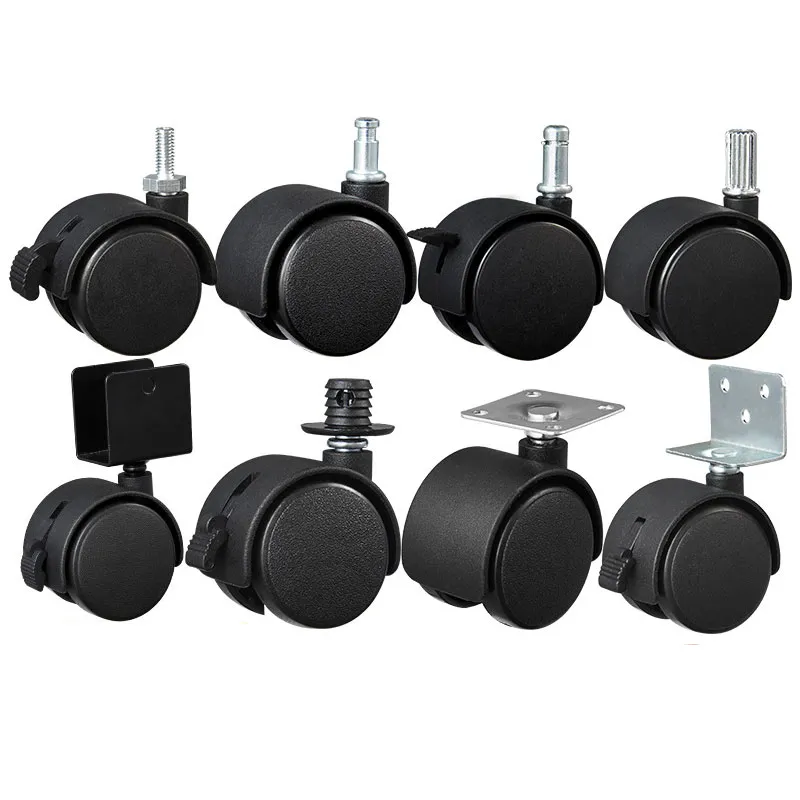
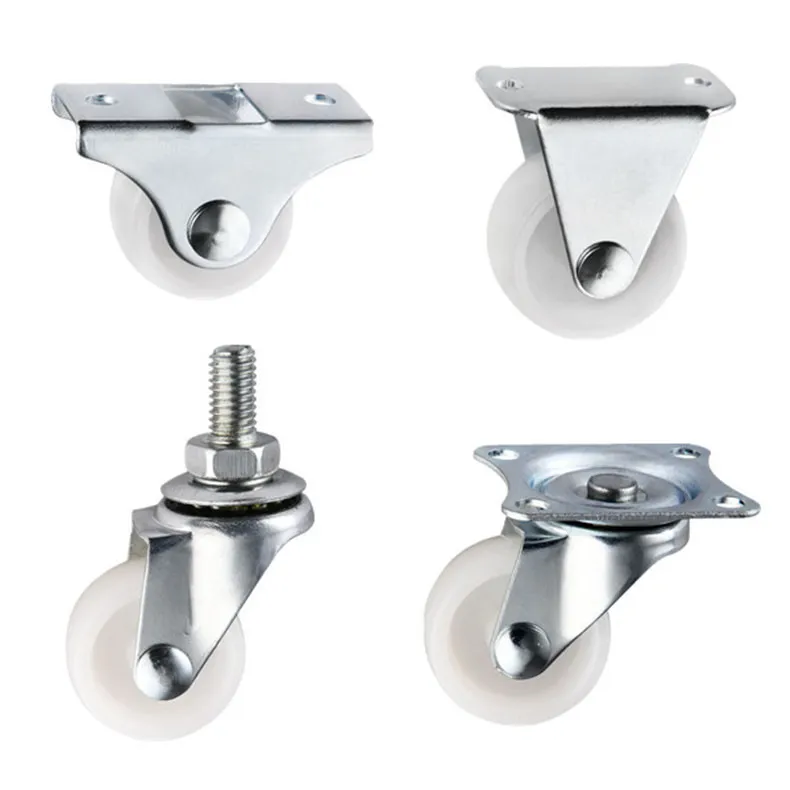
③. Advantages of Polypropylene Casters:
Cost-Effective: They are often more affordable than other types of casters, making them ideal for budget-conscious applications.
Good for Light Loads: These casters work well in environments where heavy loads are not a requirement, such as in office settings or light-duty manufacturing-
Low Maintenance: Due to their resistance to corrosion and damage from chemicals, polypropylene casters require minimal upkeep.
④. Disadvantages of Polypropylene Casters:
Lower Load Capacity: They are not suited for heavy-duty applications, as the material can deform under excessive weight.
Less Durable on Rough Surfaces: While suitable for smooth surfaces, they can wear out quickly on rough or abrasive floors.
Limited Shock Absorption: Polypropylene casters may not be the best choice in environments where shock absorption is critical, as they offer less cushioning compared to softer materials.
In summary, polypropylene casters stand out for their lightweight nature, affordability, and corrosion resistance, making them a practical choice for light-duty applications. However, their limitations in load-bearing capacity and durability on rough surfaces should be carefully considered when deciding if they are the right fit for your specific needs.
3. What are Polyurethane Casters?
In contrast to polypropylene, polyurethane casters offer a different set of characteristics that cater to more demanding applications. But what exactly defines a polyurethane caster, and why might it be the preferred choice in certain scenarios?
① Definition and Basic Description:
Polyurethane, a type of elastomer, is renowned for its strength and versatility. Casters made from this material are known for their durability and capacity to handle heavier loads compared to their polypropylene counterparts. They are a common choice in industrial settings and places where floor protection is a priority.
②Characteristics of Polyurethane Material:
High Load Capacity: Polyurethane casters can support significantly heavier weights, making them suitable for industrial applications and heavy equipment.
Floor Protection: These casters are less likely to mark or damage floors, a crucial factor in environments where floor preservation is important.
Noise Reduction: Polyurethane casters tend to operate more quietly, an advantage in noise-sensitive environments like hospitals and office buildings.
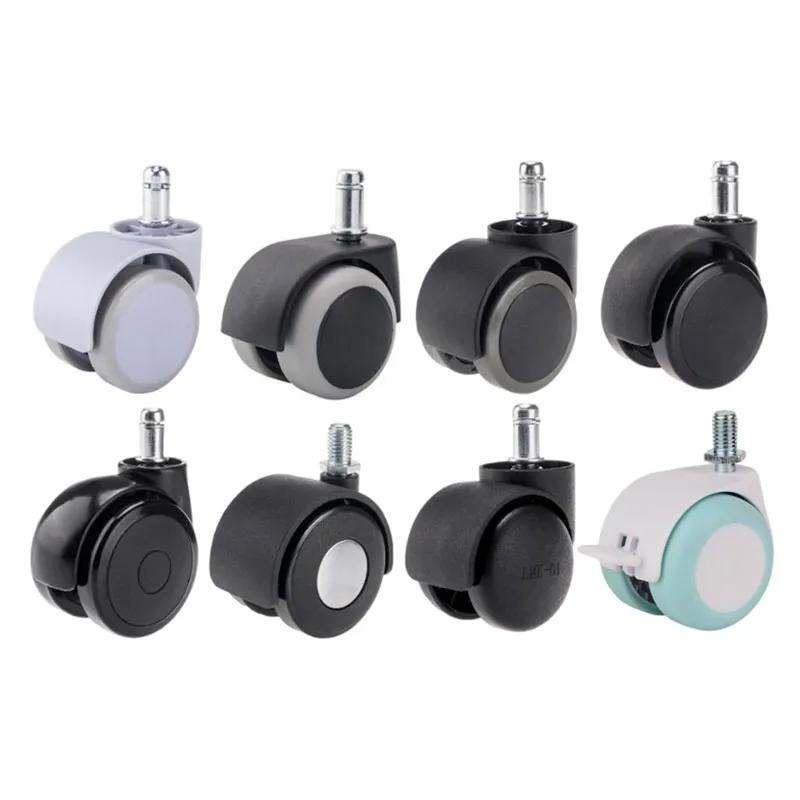
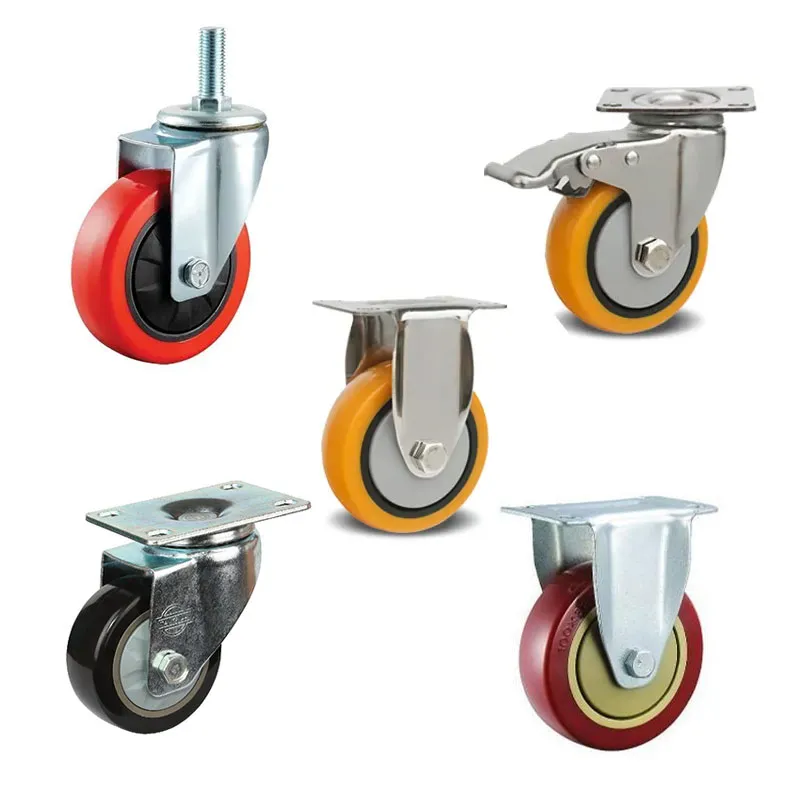
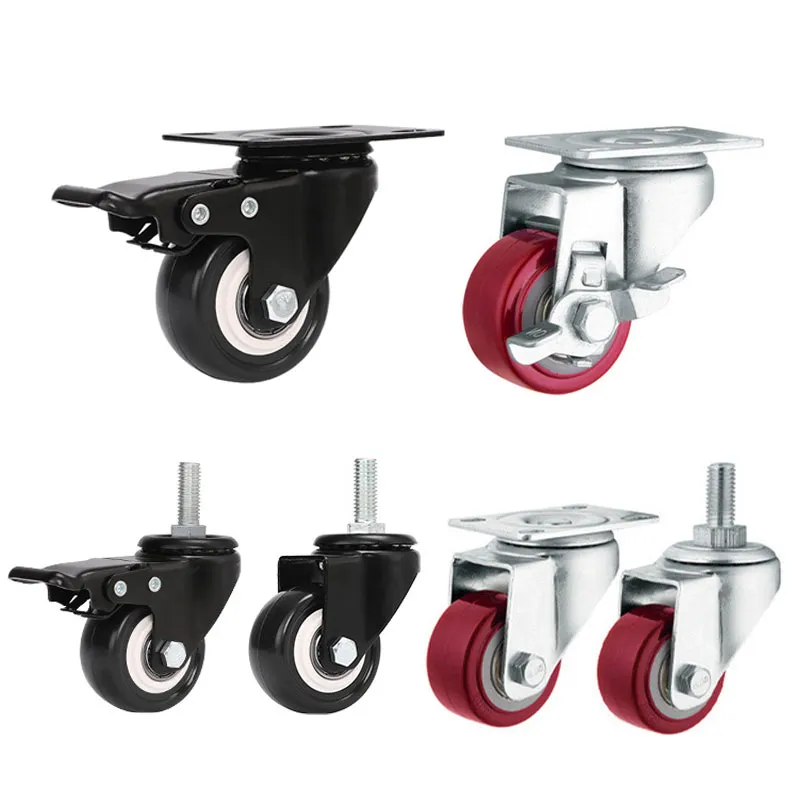
③Advantages of Polyurethane Casters:
Durability: They withstand wear and tear much better, especially in rough or abrasive environments.
Versatile Application: Suitable for a wide range of uses, from heavy industrial equipment to furniture requiring floor protection.
Better Shock Absorption: Polyurethane offers superior cushioning, which helps protect both the load and the floor from impacts.
④Disadvantages of Polyurethane Casters:
Higher Cost: They are generally more expensive than polypropylene casters, which might be a consideration for budget-restricted projects.
Potential Floor Marking: While less likely than some materials, certain types of polyurethane can leave marks on floors under heavy loads or extreme conditions.
Heavier: The increased durability and load capacity come with added weight, potentially making them less suitable for applications where lightweight mobility is key.
Polyurethane casters are a robust and versatile option, ideal for applications that demand high load capacity, floor protection, and durability. Their ability to withstand challenging environments and provide smooth, quiet operation makes them a favored choice in many ทางอุตสาหกรรม and commercial settings. However, the higher cost and weight are important factors to consider when determining their suitability for your specific needs.
4. Comparative Analysis: Polypropylene vs Polyurethane Casters
When deciding between polypropylene and polyurethane casters, understanding their differences is key. This section provides a side-by-side comparison of these two materials across various attributes, helping you make an informed decision for your specific needs.
Load Capacity
- Polypropylene: Best suited for lighter loads. They tend to deform or break under heavy weight.
- Polyurethane: Excellent for heavy-duty use. They maintain integrity even under substantial weight, making them ideal for industrial applications.
- Calculate your caster load needs with our เครื่องคิดเลข Load Caster ออนไลน์
ทนต่อสารเคมี
- Polypropylene: Highly resistant to a wide range of chemicals, including acids and solvents, making them suitable for laboratories or factories.
- Polyurethane: Generally good chemical resistance, but specific formulations may vary in their tolerance to certain chemicals.
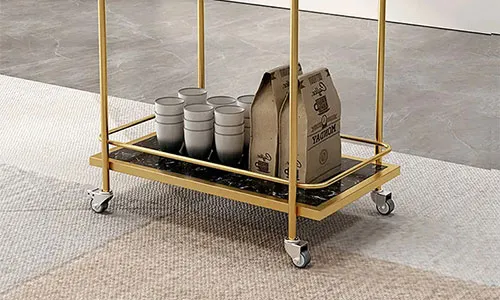
Water Resistance
- Polypropylene: Naturally resistant to water and moisture, which prevents corrosion and makes them ideal for damp environments.
- Polyurethane: Also resistant to water, ensuring longevity in various environments.
Impact Resistance
- Polypropylene: Less effective at absorbing shocks, which can lead to damage in high-impact situations.
- Polyurethane: Superior in absorbing shocks and impacts, protecting both the load and the floor.
สึกหรอ
- Polypropylene: Less durable on rough or abrasive surfaces, leading to quicker wear.
- Polyurethane: Highly resistant to wear, even on rough surfaces, which enhances their lifespan.
Applicable Floor Types
- Polypropylene: Suitable for smooth surfaces but may cause wear on softer floors over time.
- Polyurethane: Versatile for almost all floor types, including delicate surfaces, due to their non-marking and floor-protective qualities.
Purchase Suggestions
- For light-duty tasks, office environments, or when budget constraints are a primary concern, polypropylene casters are a practical choice.
- For heavier loads, industrial applications, or when floor protection and longevity are crucial, polyurethane casters are the superior option.
Understanding these differences allows for a more tailored approach to selecting the right caster. Whether it’s the lightweight and cost-effective nature of polypropylene or the durable and floor-friendly attributes of polyurethane, your choice should align with the specific demands of your application.
5. Conclusion: Making the Informed Choice
Choosing between polypropylene and polyurethane casters is more than a matter of preference; it’s about finding the right fit for your specific requirements. Our comprehensive comparison of these two popular materials highlights the importance of considering factors like load-bearing capacity, floor compatibility, and environmental resilience.
Polypropylene casters shine in scenarios where simplicity, cost-effectiveness, and light duties are the order of the day. They’re particularly well-suited for indoor environments, like offices or light industrial settings, where heavy loads are not a concern.
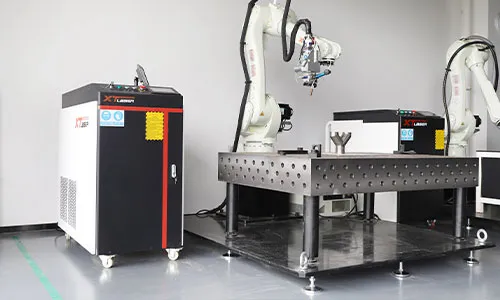
On the other hand, polyurethane casters stand out in demanding situations that require durability, floor protection, and the ability to handle heavier loads. Their versatility makes them a go-to choice for a wide range of applications, from heavy machinery in industrial settings to furniture in settings where floor care is paramount.
Ultimately, the choice between polypropylene and polyurethane casters depends on your unique needs. Are you prioritizing budget, or is the durability for heavier loads more critical? or are you looking for a solution that’s gentle on floors?
Your Trusted Partner in Caster Solutions – Bullcaster
At Bullcaster, we don’t just sell casters; we provide solutions. Understanding the nuances of each caster type and how they align with your specific requirements is our specialty.
Ready to make your move? Contact us today to discuss your caster requirements, or visit our website to explore our extensive range of caster solutions.


